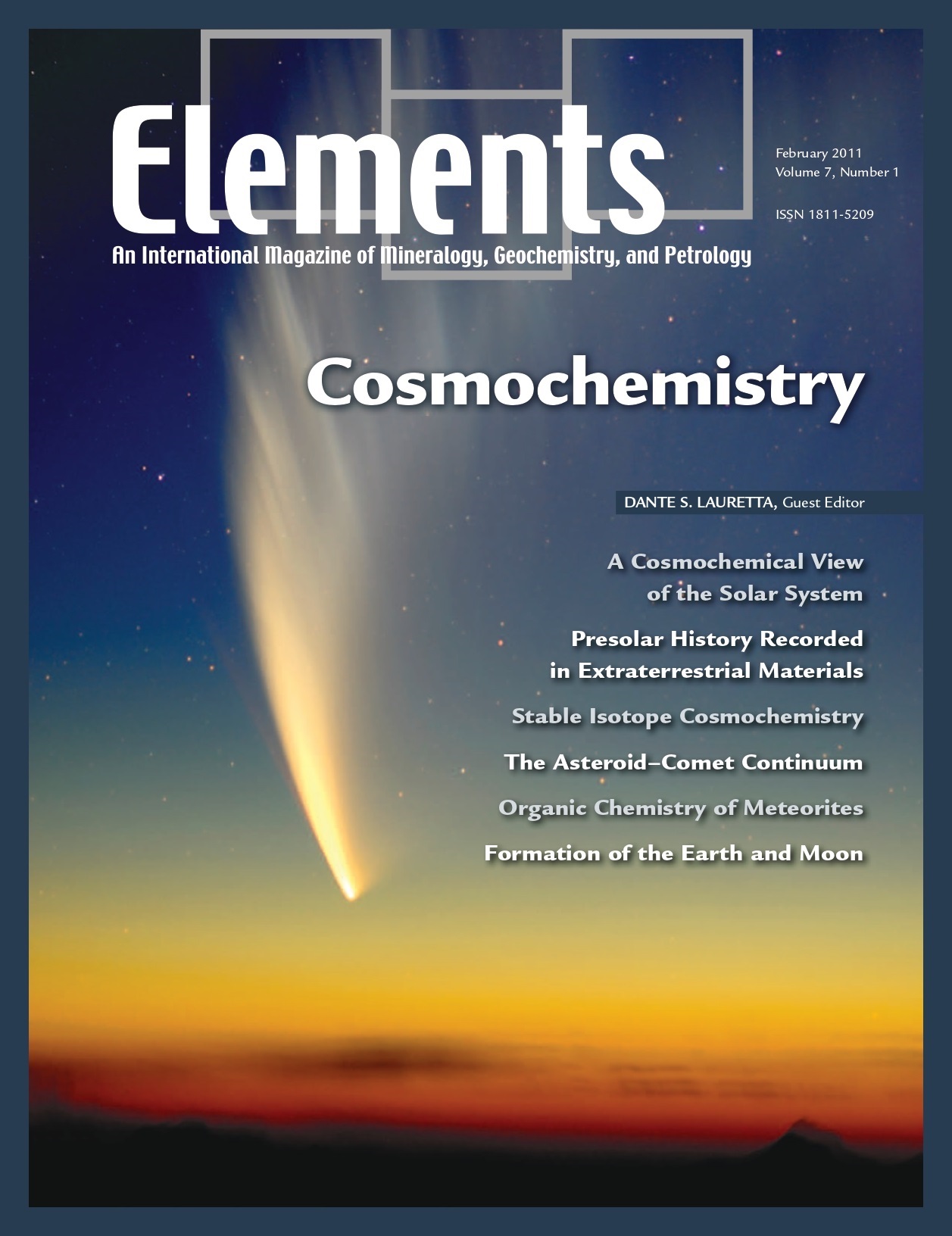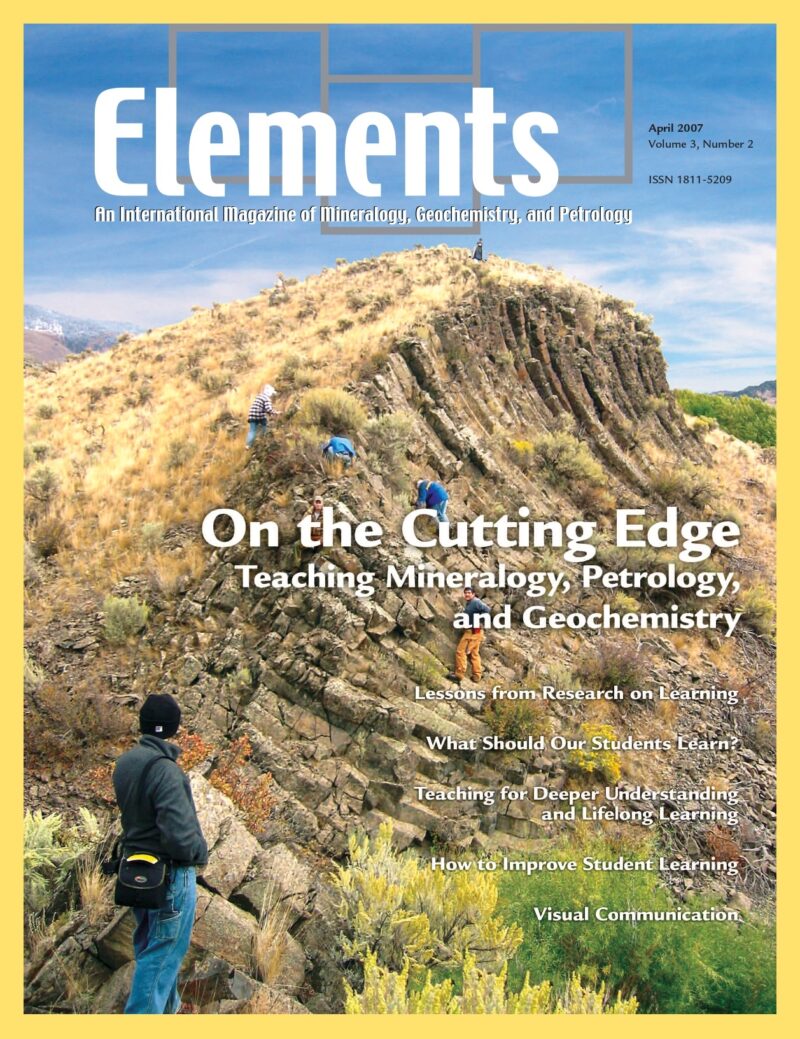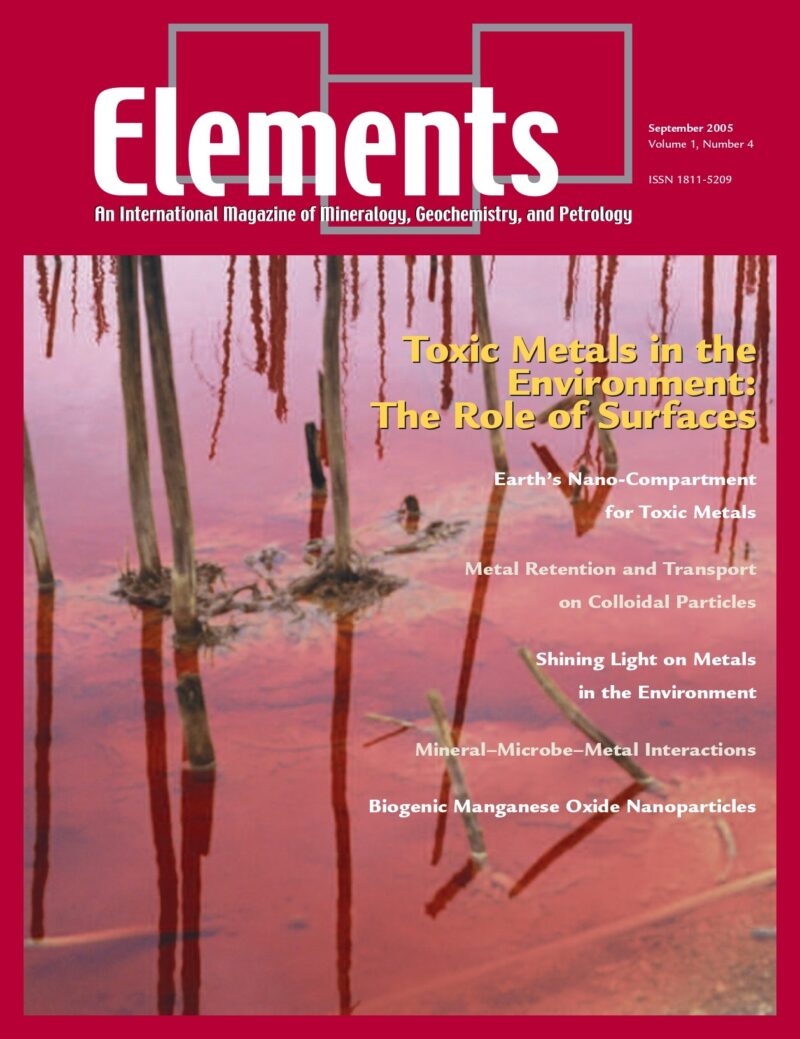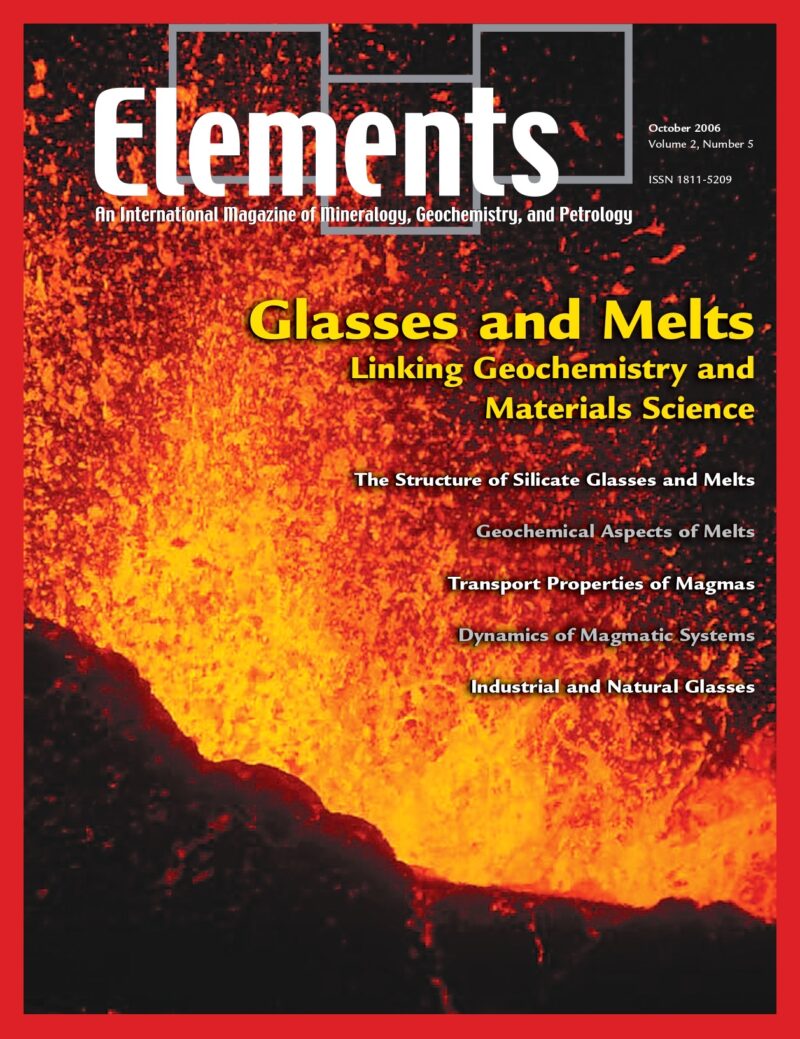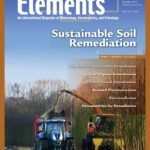
Sustainable Remediation Of Soils, December 2010, Vol. 6, No. 6
June 28, 2024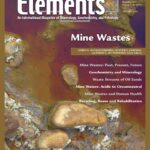
Mine Wastes, December 2011, Vol. 7, No. 6
June 28, 2024Cosmochemistry, February 2011, Vol. 7, No. 1
$20.00
Cosmochemistry is the study of extraterrestrial materials aimed at understanding the nature of Solar System bodies, including the planets, their natural satellites, and small bodies. An important goal is to increase our understanding of the chemical origin of the Solar System and the processes by which its planets and small bodies have evolved to their present states.
Cosmochemistry
February 2011, Vol. 7, No. 1
Cosmochemistry is the study of extraterrestrial materials aimed at understanding the nature of Solar System bodies, including the planets, their natural satellites, and small bodies. An important goal is to increase our understanding of the chemical origin of the Solar System and the processes by which its planets and small bodies have evolved to their present states. Research in cosmochemistry covers a wide range of disciplines and techniques, including mineralogy, petrology, major and trace element chemistry, isotope compositions, radiometric ages, magnetism, and radiation exposure effects. These studies provide a wealth of data about the processes of stellar evolution, planetary system formation, alteration in asteroidal and cometary interiors, and the accretion history of the Earth, including the origin of Earth’s volatile and organic material.
Why You’ll Love Elements Magazine:
- Expert Contributors: Articles written by renowned researchers in the field of geoscience.
- Engaging Content: Join a community of readers who are passionate about Elements.
- Exceptional Quality: Each issue is printed on high-quality paper with stunning visuals and detailed illustrations that bring complex scientific concepts to life.
Order your copy of the February 2011 issue of Elements magazine today and explore cosmochemistry.
Related products
-
On The Cutting Edge: Teaching Mineralogy, Petrology, And Geochemistry, April 2007, Vol. 3, No. 2
$20.00New advances in research on learning have important implications for teaching mineralogy, petrology, and geochemistry. Effective instructional practices are increasingly student centered, address diverse student learning styles, and employ a variety of active-learning strategies.
-
Toxic Metals In The Environment: The Role Of Surfaces, September 2005, Vol. 1, No. 4
$20.00Metals are prevalent in the environment. They are derived from both natural and anthropogenic sources.
-
Glasses And Melts: Linking Geochemistry And Materials Science, October 2006, Vol. 2, No. 5
$20.00Geological interest in studying melts stems from early recognition that melts play a fundamental role in determining the physical and chemical behaviour of magmas and magmatic processes. However, due to the inherent difficulties associated with working at high temperatures, much of the geological research over the last 30 years has used quenched melts or glasses as proxies for melts themselves.

